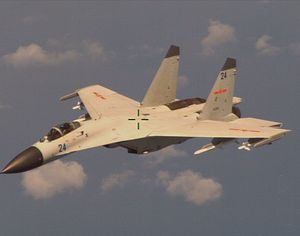A quick round-up of this week’s China news:
Dueling analyses of the aerial confrontation between a Chinese fighter and a U.S. P-8 aircraft continue to dominate China news this week. The Diplomat has featured articles from the perspective of U.S. analysts (in pieces by Ryan Santicola and James Holmes) as well as pieces outlining Chinese perspectives (pieces by Jin Kai and Dingding Chen). The fundamental question is two-fold: does the U.S. have a right to conduct surveillance a mere 220 kilometers from Chinese territory? And do Chinese pilots have a right to aggressively intercept these U.S. surveillance missions?
The problem will likely intensify in the coming months. The U.S. is determined to gather intelligence on China’s submarine fleet, which operates out of a base in Hainan. But China, as Reuters reports, is equally determined to prevent this surveillance, even if it means adopting ever riskier air intercept maneuvers. As one PLA Rear Admiral put it in comments to the Global Times, “A knife at the throat is the only deterrence. From now on, we must fly even closer to U.S. surveillance aircraft.” This problem, like so many others in U.S.-China relations, is a case of Beijing finally feeling empowered to put a firm stop to U.S. actions it has long found objectionable. Meanwhile, the U.S. expresses bewilderment as the sudden change.
In other news, Carlos F. Chamorro, writing for ChinaFile, looks into the incredible plan for Chinese businessman Wang Jing to build a trans-oceanic canal across Nicaragua. The project is estimated to cost at least $50 billion, but would provide Nicaragua with a larger, more modern alternative to the Panama Canal — with the Chinese developer having 50 years’ worth of rights to the canal. As Chamorro puts it, the proposed canal “threatens to significantly reformat power alignments in Latin America and the world.”
However, Chamorro focuses more on the mysteries behind the project, rather than the broader geopolitical ramifications. Wang Jing’s Hong Kong Nicaraguan Development (HKND) company has been vague with details, from the names of international investors to the results of feasibility and environmental studies associated with the massive project. The lack of transparency surrounding the canal hints that the Chinese government may be more directly involved than it would like anyone to know, raising concerns about how to safeguard Nicaragua’s national interests — especially given the lack of democratic oversight in the granting of concessions to HKND thus far.
Finally, in domestic Chinese news, Tea Leaf Nation (via Foreign Policy) has details on a violent clash between military officers and Chinese high school students. On-campus military training from officers is an annual tradition at Chinese public schools and universities, but this year’s training session at Huangcang High School in Hunan Province turned bloody. According to reports, an argument began when a male student confronted a military officer who had been joking with a female student. As punishment, the officer ordered the students to do push-ups. When some refused, the officer began beating male students. A teacher who tried to intervene was also beaten by the officers. 40 students sustained injuries in the incident. TLN also parses the social media response to the incident, which broadly falls into two camps: military enthusiasts who see the brawl as evidence that Chinese youths are soft and spoiled and more liberal commenters who blamed the military for a lack of discipline.
China’s Ministry of Defense has promised to improve training and regulation of its military instructors to help prevent future incidents. Defense Ministry spokesman Yang Yunjun conveyed the military’s “sincere sympathy to students and families involved in the accident.” Two military officers have reportedly been fired for their role in the brawl.
































